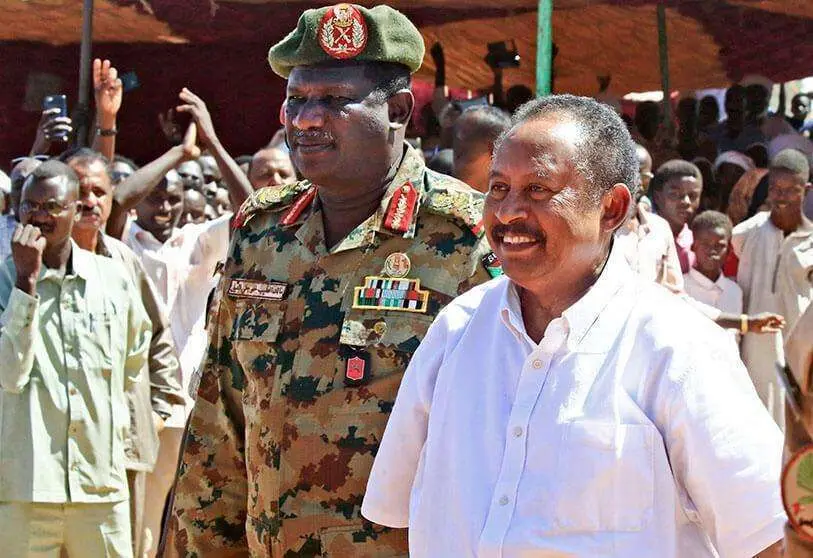Sudan accuses Ethiopia of an attack on its forces

Ethiopia and Sudan are two neighbours whose relations are rather complicated. Since the outbreak of the conflict in Tigray, the UNHCR estimates that more than 40,000 Ethiopian refugees have crossed the border into Sudan. The two countries have tense relations, especially on their borders. Sudan has already reported on several occasions attacks against civilians and military at the border. The government has also asked the neighbouring country to respect the border agreements.
Sudan is again accusing Ethiopian forces of an attack on military and civilians on Sudanese territory. This offensive comes a few days after a parliamentary commission accused the Sudanese army of supporting the rebels in the Tigray region.
"On Tuesday night, while our forces were returning to their base after inspecting the area around Jebel Abu Teyyor, inside Sudanese territory, they were ambushed by Ethiopian forces and militias. The attack resulted in loss of life and equipment," the Sudanese army's Military Media Centre said in a statement on Wednesday.
This statement does not specify the number of dead, but military sources have confirmed to the Sudan Tribune that the ambush has claimed the lives of one officer and three soldiers, as well as injuring twelve others.
The Sudanese army said its troops would vigorously repel any attack on Sudanese territory and announced the deployment of its forces to prevent "parties to the conflict in Ethiopia from using Sudanese territories in their attacks".
For his part, Sudanese Prime Minister Abdallah Hamdok issued a statement on Wednesday night expressing his government's support for the army following the Ethiopian attack. "The Council of Ministers affirms its support and position with the armed forces," Hamdok said the government "affirms its confidence in the ability of our armed forces to protect the country's borders and repel any aggression," he further said in what appeared to be a call for popular support for the army.
The conflict in Tigray is increasingly evident in Sudan; internal tensions in Ethiopia have been spreading to the neighbouring country, which is already under great pressure from refugees fleeing the war. Added to the migratory pressure are attacks on its border by the latter, which accuses Sudan of supporting the People's Front for the Liberation of Tigray (TPLF).

The current prime minister, Abyi Ahmed, leader of the People's Democratic Revolutionary Front, who paradoxically won the Nobel Peace Prize in 2019, came to power in 2018 and promised reforms and free elections, released political detainees and made peace with Eritrea. Abyi Ahmed emerged as the country's great hope, capable of uniting the different ethnic groups under a single command.
But this great hope gradually faded away. In response to the postponement of the elections by the COVID-19, the People's Front for the Liberation of Tigray (TPLF) decided to hold elections on its own in the region and attacked an Ethiopian army base. Abyi Ahmed then declared war on this territory in the north of the country last November; since then the country has been plunged into a spiral of chaos and violence.
The United Nations Children's Fund (UNICEF) estimates that some 12,000 children, some of them without parents or relatives, are sheltered in Sudan in camps where "conditions for these children are extremely harsh" and estimates that in the coming days and weeks "more than 200,000 people" could cross from Tigray to Sudan.








